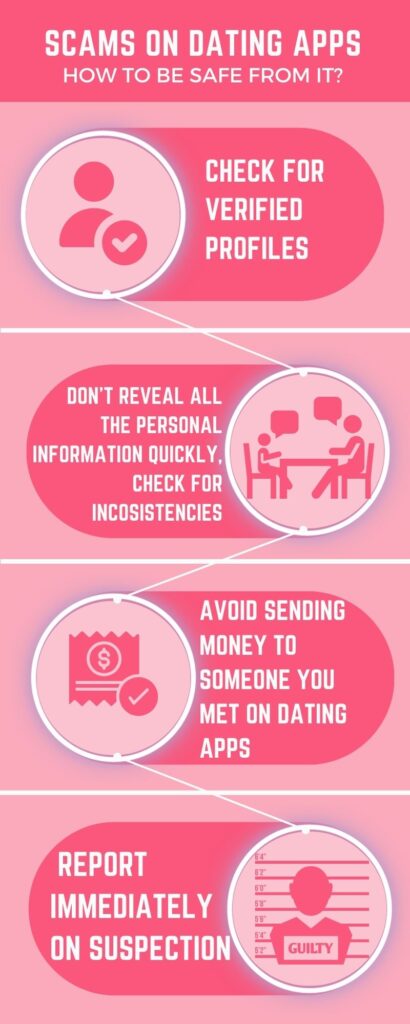Survey conducted by Norton antivirus shows that on average, Indians lost about Rs. 7966 during 2022-2023 to scammers on dating apps.
If you use dating apps like Tinder, Bumble or Hinge to find the love of your life, you may need to be worried about scammers lurking on these apps as well.
A survey by Norton antivirus conducted in 2022-2023 showed that about 66 percent of Indians have experienced at least one online dating or romance scam, which includes scams like catfishing, financial scams or intimate activity scams. The survey was conducted in eight countries, out of which India has the highest percentage of individuals who have experienced dating scams at least once.
Varun Gowda,a student, experienced catfishing when he went to meet a girl he met through Hinge. “The pictures she uploaded on her profile were not of her, it was her friend,” he said, “I travelled over 18 kilometres to meet her, and it was an absolutely different person. I tried to confront her but she had no proper response to that. She kept inviting me to her apartment when I dropped her off, which kept making me suspicious, so I found an excuse and left the place as soon as I could.”

Furthermore, he said that the incident made him uninstall all sorts of dating apps from his phone. “I do not know how bad the incident could have been. It could have also been a harmless prank, but the fact that you are impersonating someone on a dating app is in itself a case of identity theft,” He added.
Catfishing refers to a user making a fake identity, or pretending to be someone else with the intent of deception. Illegal activities that happen because of catfishing, which becomes the case of identity theft, are punishable under section 66C of IT act, 2000. If found guilty the individual will be punished with imprisonment which may extend up to three years and shall also be liable to pay for a fine that may extend to rupees one lakh.
Prashant, software engineer and cybersecurity expert, said that catfishing leads to more scams like financial or intimate activity scams. “The scammer will first introduce themselves as a different person, and then make the victim believe that they are real. Then, they will either ask for money or intimate pictures,” he said, “Sometimes they even ask you to go on a date. That could be really dangerous.”
Riya Gupta, marketing executive at an automobile company, had a similar experience of falling victim to catfishing. “I met a guy who named himself Ritik Mahajan, who is a social media influencer as well. The person had all the pictures of the influencer, and it was rather surprising to me, until I realised the person has been catfishing,” she said.

She said she found out about the catfishing when she asked the culprit to do a spontaneous task and he was unable to do that. “He tried to make me believe that it is him by saying multiple times he is the influencer, asked for my Snapchat handle and kept asking me for my ‘hot pictures’, which made me very uncomfortable. I just asked him that if he is the same person, he would know what text I sent him on his Instagram account. If he was,, he would have simply seen the text and showed me,” she added, “but he kept trying to say the same thing about being real and whatnot. That confirmed my suspicion.”
Later, she reported the account on Bumble. “I realised that catfishing is common, and the thought of what extent he could go; if I decided to believe him scares me,” she said.
A spokesperson from dating app Hinge confirmed that scammers exist on the app. “We cannot stop anyone from registering on the app, but we do have the verification badge given to users who pass the verification process. The process is to simply click a picture of the user doing the pose we ask them to do, and we match it with the pictures they uploaded on their profiles,” he added.
He also said that reporting a scam as soon as possible helps the organisation to take down the account quickly. “There are about 50 reports from different users in a week about certain scams or harassment, and we want to work as quickly as possible to take the scam account down,” he said.
A survey report by McAfee Antivirus named “Love Bytes” in 2023 stated that about 60 percent of their survey respondents said that they dug up information about people they met on dating apps, while 38 percent respondents said they used reverse search image options available, out of which 13 percent found out that they have been catfished. The survey’s respondents were individuals from seven countries, which included India.
Prashant said that one should check the verification signs of the user on dating apps before getting connected with them. “It is a necessary task if you really want to be away from catfishers. The verifying process is most likely through spontaneous tasks like clicking a picture or recording a video in a specific pose or doing a task, so it assures that the person is real. Even after verified sign, one should watch out on the behaviour of the person they are talking to, and it is highly advisable to not share a lot of personal information unless you are sure. And one should never send money to someone they met online or don’t know in person,” he added.




